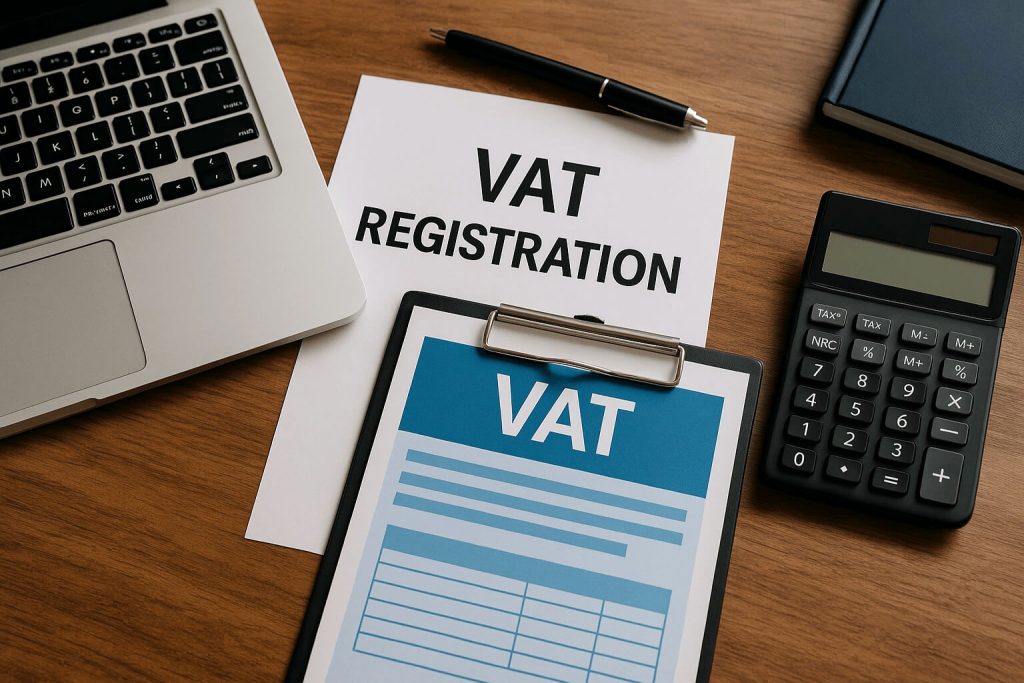All individuals and companies conducting business in the UAE are required to maintain accounting records. This includes freelancers, foreign companies, offshore entities, free zone companies, and mainland companies.
Tax accounting is mandatory for entities whose place of activity is the UAE. This applies to foreign companies operating in the UAE, branches of foreign entities, freelance license holders, and UAE-registered companies holding a trade license.
The corporate tax was introduced starting from the current financial year. The standard rate is 9% for companies with annual taxable income exceeding AED 375,000 (approx. USD 102,000). Income below this threshold is not taxed.
The Value Added Tax (VAT) was introduced in 2018 and is levied at 0% or 5%, depending on the nature of goods and services.
In addition, customs duties and property-related transaction fees apply in certain cases. For a detailed consultation on these matters, please reach out to your assigned account manager.
The UAE follows International Financial Reporting Standards (IFRS).
The UAE applies the accrual basis of accounting. Income is recognized in the period it is earned, and expenses are recognized in the period they relate to — regardless of when payment is actually made.
Mandatory VAT registration must be completed within 30 days of the date on which the total taxable supplies and expenses over the past 12 months exceed AED 375,000, excluding companies conducting out-of-scope or exempt activities.
Voluntary VAT registration is available for companies with taxable supplies or expenses exceeding AED 187,500 in the past 12 months, provided they can demonstrate they are likely to exceed the AED 375,000 threshold soon.
No. Accounting and tax records must be maintained in the national currency — UAE Dirhams (AED).
The main advantage of free zones is their infrastructure and simplified regulatory environment. However, tax legislation applies to all companies with a UAE trade license, including those in free zones and on the mainland.
That said, certain tax incentives are available to free zone entities:
- Corporate Tax: Free zone companies may qualify for 0% tax under the status of a Qualifying Free Zone Person, provided they derive qualifying income from specific activities.
- VAT: Companies registered in Designated Zones are treated as operating outside the UAE for VAT purposes — as long as they trade goods or services strictly with clients located outside the GCC.
The tax base is calculated as revenue minus allowable expenses. If the resulting profit exceeds AED 375,000, the 9% corporate tax is applied to the amount exceeding this threshold.
The following are deductible expenses under the corporate tax regime:
- Employee salaries
- Operational expenses (e.g., hotels, flights, taxis — with proper documentation)
- Other company costs (e.g., staff uniforms, team-building events, employee meals)
The corporate tax framework is currently under development, as part of compliance with FATF requirements. Thus, detailed regulations and legal precedents regarding deductible expenses are still evolving.
Yes. Supplies that do not physically enter the UAE are considered outside the scope of UAE VAT. However, it is crucial to review the applicable contractual terms in detail. Consult your account manager for personalized guidance.
Yes. Services rendered by UAE companies to clients outside the UAE are subject to 0% VAT. However, VAT registration and reporting remain mandatory in such cases.

Leave a request for a consultation with our expert
We will contact you as soon as possible to discuss all details. Our experts will answer all your questions and offer the best solutions for your reques



